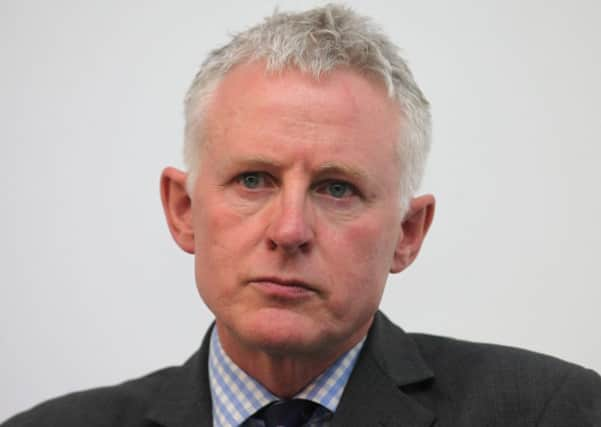Lamb wants legal assisted dying


A date has yet to be set for Parliament to debate Lord Falconer of Thoroton’s private member’s bill into the legalisation of assisted dying and several previous attempts to legislate on the issue have failed.
While both David Cameron and Nick Clegg have said they personally oppose such a change, Liberal Democrat MP Mr Lamb said he would vote in favour of allowing terminally ill adults with less than six months to live to choose to be helped to kill themselves as he believes there is “quite widespread public support” for ending what is a “cruel” system that left relatives unsure if they would be prosecuted.
Advertisement
Hide AdAdvertisement
Hide AdBradford’s Debbie Purdy has been campaigning for a change in the law for several years and in July 2009 she obtained a House of Lords ruling ordering the Director of Public Prosecutions (DPP) to formulate a policy setting out the factors to be considered when deciding whether to prosecute for assisting a suicide.
Assisted suicide remains a criminal offence in England and Wales, and is technically punishable by up to 14 years in prison but guidelines issued by the DPP in 2010 indicated that anyone acting with compassion on the will of a dying person was unlikely to face criminal charges.
That has been the case in around 90 such deaths examined by prosecutors since then.
Critics - including doctors, disability campaigners and churches - warn that a formal change in the law would leave people vulnerable to pressure from family and others to end their lives.
Advertisement
Hide AdAdvertisement
Hide AdThe issue has split the House of Lords in recent debates, with the severely-disabled Baroness Campbell of Surbiton among those warning of the dangers.
“It is not only dangerous for those who may see suicide as their only option, it can also be tempting for those who would benefit from their action,” she told peers.
Former Commons speaker Baroness Boothroyd insisted however that it was vital to change a system that added “cruelly to the suffering of people who want to die with dignity”.
Mr Lamb said that his own conversations with terminally-ill patients had swung his opinion in favour of legalisation which included sufficient safeguards.
Advertisement
Hide AdAdvertisement
Hide Ad“What an invidious situation to leave people in,” he told Sky News.
“Can we really be comfortable with a situation where people, acting out of compassion for a loved one who is dying, are left uncertain as to whether they will face prosecution?”
There need to be proper safeguards, he admitted, to guard against relatives or others seeking to get control of a person’s estate but he added: “I think you can meet those safeguards.”
Under Lord Falconer’s proposals, two doctors would have to sign off the fatal dose, and MPs would be allowed a free vote on the issue if it is debated in the House of Commons.
Advertisement
Hide AdAdvertisement
Hide AdMPs are traditionally freed from the constraints of party discipline on such issues and allowed to vote according to individual conscience.
Mr Lamb sad it remained “very hard to judge” whether it would be supported in the Commons.
Foreign Secretary William Hague, who has opposed the proposals in the past, said that he remained opened to a change of heart but he was very concerned about creating some “new grey area in the law” that can be misused.